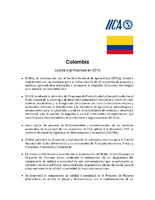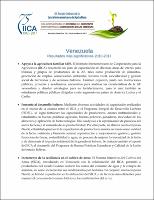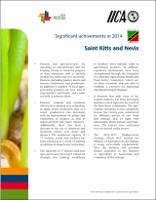| dc.contributor.author | Villalba, Roberto | es |
| dc.contributor.author | Venus, Terese E. | es |
| dc.contributor.author | Sauer, Johannes | es |
| dc.date.accessioned | 2023-01-16T20:51:12Z | |
| dc.date.available | 2023-01-16T20:51:12Z | |
| dc.date.issued | 2023 | |
| dc.identifier.uri | https://repositorio.iica.int/handle/11324/21382 | |
| dc.description | Con participación de Arias Segura, Joaquín [entrevistado]. | es |
| dc.description.abstract | In developing countries, smallholder farmers often lack long-lasting sources of credit. While traditional banking, microfinance, and cooperatives have addressed some financing gaps, Agricultural Value Chain Finance (AVCF) has attracted attention as it allows value chain actors to leverage social capital and satisfy their funding needs. To identify the driving factors for the development of AVCF, we analyze the role of non-farmer actors including banks, development organizations, agribusinesses, and academia using in-depth expert interviews. Following a Grounded Theory approach, we propose the Ecosystem Approach as a framework for establishing long-lasting AVCF schemes in developing countries based on three critical solutions: building financial platforms for value chain transaction records, implementing bundled services for the value chain, and evolving from a value chain to a value web approach. Our findings introduce six propositions that shed light on key factors for the development and longevity of financing schemes: i) the AVCF Ecosystem, ii) how AVCF schemes emerge, iii) social capital and value chain interactions, iv) culture and value chain characteristics, v) market risk, vi) transaction costs reduction. We find that AVCF can use social and trade capital to reduce transaction costs and mitigate risks related to quality, prices, and markets. In AVCF ecosystems, there are financial products for interlinked agricultural value chains with a balanced focus on all chain actors, no lock-in relationships between the lenders and the borrowers, and multiple benefits for participants. As the evolution towards an Ecosystem Approach offers a promising outlook for agricultural credit, future research should explore how policymakers and development agencies can support these schemes and how they can be used to increase financial access and equity in rural communities. | es |
| dc.format.extent | 17 páginas | es |
| dc.language.iso | en | es |
| dc.publisher | Elsevier | es |
| dc.relation.ispartof | World Development | es |
| dc.relation.uri | https://doi.org/10.1016/j.worlddev.2022.106177 | es |
| dc.subject | Cadenas de valor agrícolas||agricultural value chains||chaîne de valeur agricole | es |
| dc.subject | Financiamiento||financing||financiamento||financement | es |
| dc.subject | Cadena de suministro alimentario||food supply chains||chaîne d'approvisionnement alimentaire | es |
| dc.subject | Finanzas rurales||rural finance||finanças rurais||finances rurales | es |
| dc.subject | Capital social||social capital||capital social | es |
| dc.subject | Crédito||credit||crédito||crédit | es |
| dc.subject | Crédito rural | es |
| dc.subject.other | Sede Central | es |
| dc.title | The ecosystem approach to agricultural value chain finance A framework for rural credit | es |
| dc.type | Artículo | es |




